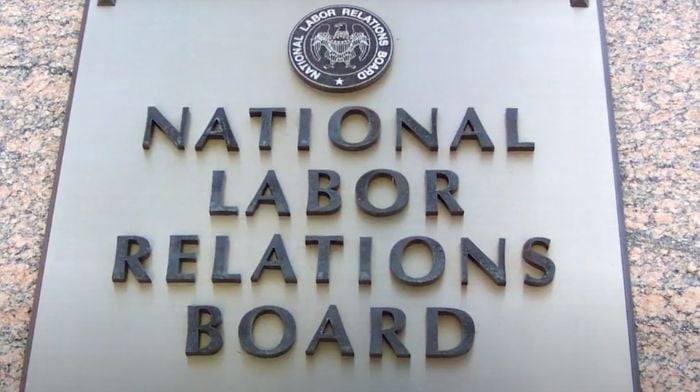By Casey Harper (The Center Square)
Newly introduced legislation would significantly limit the power of the National Labor Relations Board, an independent federal agency that currently holds broad sway over businesses, including small businesses.
Critics say the agency, which aims to help private sector workers, has become highly politicized, doing the bidding of labor unions that are working with the Democratic party as small businesses pay the price.
U.S. Rep. Bob Good, R-Va., introduced the “Small Businesses Before Bureaucrats Act” this week. In 1958, Congress set standards for which businesses the NLRB had jurisdiction over, which includes any retail business with annual revenue topping $500,000 and non-retail businesses with annual revenue over $50,000.
Because of inflation, more and more small businesses have been caught by the dated figures, which originally only applied to much larger businesses.
Good’s legislation raises the threshold for NLRB’s jurisdiction, raising it to $5,000,000 for retail businesses and $500,000 for non-retail businesses.
“The NLRB has used outdated standards to impose greater power over businesses which never should have been regulated by the Federal Government in the first place,” Good told The Center Square. “This is consistent with Biden Administration’s weaponization of federal agencies against everyday Americans to implement its radical agenda.”
Related: Americans’ Inflation Pain Hits a New High
Good’s office said this would mean that “more than 50% of retail and non-retail businesses will be exempt and relieved from NLRB jurisdiction.”
“Unelected bureaucrats should not be empowered to cripple small business owners with burdensome regulations and tilt the playing field in favor of union bosses,” Good said. “Our nation’s small businesses should be able to operate as freely as possible without government intervention.”Max Nelsen, director of Labor Policy at the Freedom Foundation, said that the NLRB is no longer a neutral arbiter between labor and business but has sided with unions for political reasons. That alleged bias, along with the NLRB’s steadily growing power, has impacted small businesses.
“Instead, under President [Joe] Biden, the NLRB has been stacked with union attorneys who presume to know what is best for American workers and whose mission in life is to drag as many of them into unions as possible, knowing that increased union membership, revenue and political clout will be deployed largely to the benefit of the Democrat Party,” Nelsen told The Center Square.
Nelsen argues the NLRB’s jurisdiction should be indexed with inflation.
“Updating and indexing the NLRB’s jurisdictional thresholds to inflation, as H.R. 3400 would do, is a commonsense reform that would better reflect the purposes of the National Labor Relations Act and help shield American small businesses, and the workers they employ, from the predations of a long-politicized bureaucracy currently captured by Big Labor partisans,” he said.
The NLRB did not respond to a request for comment in time for publication.
Related: Federal Unions Added 80,000 New Employees In Just the Last Year
Meanwhile, House Oversight Republicans have launched an inquiry into the NLRB’s Inspector General David Berry, alleging that Berry has rebuffed attempts at Congressional oversight of the agency.
“The Committee on Oversight and Accountability is investigating your attempt to undermine a legitimate congressional investigation by investigating a subpoena issued by Committee on Education and the Workforce (E&W Committee) Chairwoman Virginia Foxx to the National Labor Relations Board (NLRB) that was based on whistleblower accounts,” House Oversight Committee Chair James Comer, R-Ky., wrote in a letter to the IG last month.
“This is a novel attempt to redefine—and indeed, reverse—the relative powers of inspectors general and the body (i.e., Congress) that created them,” he continued. “The Oversight Committee is baffled by such absurd efforts to obstruct a congressional investigation by a retaliatory investigation initiated by an agency inspector general.”
Syndicated with permission from The Center Square.


